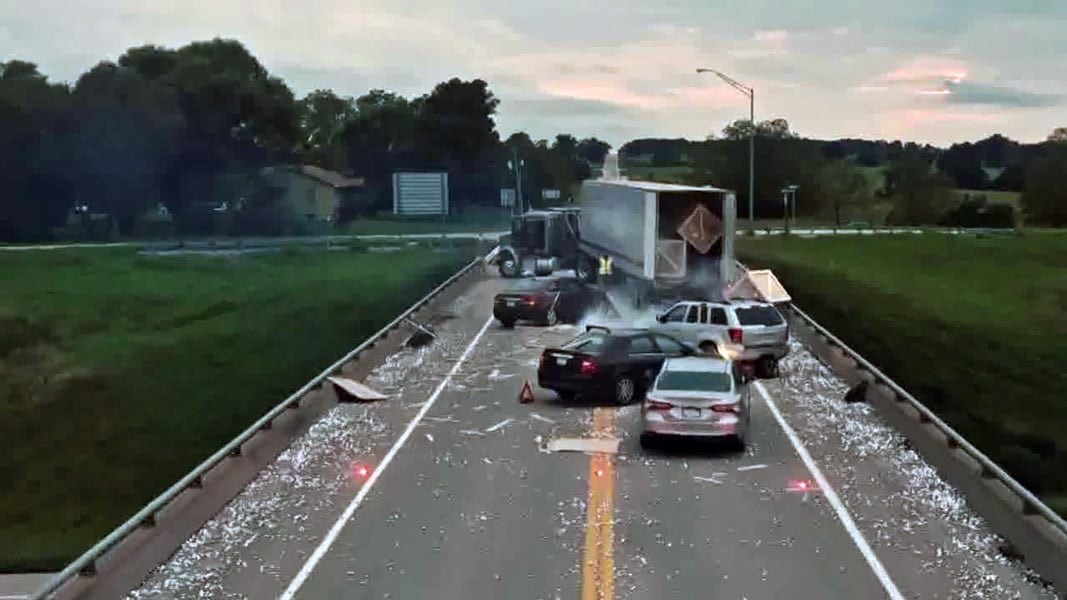Motor Truck Cargo Legal Liability Insurance 101

Cargo insurance is one of the most important types of insurance for trucking companies and owner operators. Many things can go wrong while transporting freight from one destination to another. Without adequate insurance coverage, trucking companies and owner operators can be held liable for these damages.
Get Your motor cargo Insurance Quote
What is Cargo Insurance & What Does it Cover?
Motor truck cargo insurance is a type of insurance that covers property and goods while being transported by a motor carrier. Companies that ship goods with trucking companies will typically require cargo insurance.
Premiums and coverage limits vary depending on a variety of factors, including:
- Type and amount of cargo
- Distance traveled
- Length of time for transporting the cargo
Cargo limits typically range from $20,000 to $100,000+. States may have minimum cargo insurance requirements for certain types of goods. However, it’s usually the owner of the cargo that determines the limits.
The federal government does not require cargo coverage (as of 2011), but again, freight brokers and shippers will require it. In most cases, they require a minimum of $100,000 in coverage.
What Does Cargo Insurance Cover?
Cargo insurance provides liability coverage for cargo that is damaged or lost due to a covered cause, such as collision or fire. Some cargo insurance companies will also cover pollutant cleanup and debris removal related to the incident.
Most insurance companies will offer endorsements that provide additional protection.
Some cargo types are excluded from coverage, and these exclusions will vary from one insurer to another. For example, Progressive’s commercial Motor Truck Cargo Insurance policy excludes:
- Live animals
- Jewelry, art, paper or money
- Tobacco, contraband, alcohol and pharmaceuticals
- Goods or property owned by the insured
- Property that is in custody of another carrier
- Shipping containers
- Property not covered under Bill of Lading
Certain types of cargo will have higher value, and your policy’s limits may not be enough to cover the difference. That’s why it’s important to ensure that you have enough cargo insurance for each load that you haul.
Additionally, theft coverage is usually capped at a lower amount than the cargo limit. It also has a higher deductible. If your deductible is normally $1,000, it may be $5,000 for a theft claim.
Typically, damage to your own vehicle, other property and other vehicles is not covered by shipment insurance, even if it’s a covered peril. Cargo insurance only covers the goods being hauled by the trucker.
Perils Covered by Cargo Insurance
Cargo insurance can come in two forms: all-risks, or named perils. With an all-risks policy, all causes of loss are covered except for specifically excluded perils. Named perils only cover risks that are specifically named in the policy.
All-risks policies generally have higher premiums because the coverage is more expansive.
Named perils policies may cover:
- Fire
- Windstorm
- Lightning
- Explosions
- Vandalism
- Collision
- Theft
- Riot or civil commotion
- Aircraft damage
Common Exclusions
While insurance companies may have their own list of exclusions, there are some common situations that aren’t covered:
- War or military action
- Nuclear hazard
- Property that is destroyed or seized by the government
- Negligent or criminal acts
- Damage or loss caused by an indirect loss
- Damage or loss caused by rough handling or poor packing
- Damage caused by dampness or extreme temperatures
- Vermin or insect damage
Unattended Vehicle Exclusion
Along with exclusions for cargo types, most policies also have an unattended vehicle exclusion. This means that if your loaded vehicle is left unattended, it will not be covered by your cargo policy.
For example, if you leave your truck at a truck stop or at your home and something happens to the cargo, your cargo insurance would not cover the cost of damage or loss.
Additional Coverage that May be Available
Cargo insurance quotes only include the base coverage that the policy offers. However, additional coverage may be available, such as:
- Debris and pollutant removal, which covers the removal of cargo that is accidentally dumped in a waterway or on a roadway.
- Earned freight coverage, which replaces lost income from loads that can’t be delivered due to a covered loss.
- Sue and labor, which covers costs related to preventing further cargo damage.
- Refrigeration breakdown, which covers losses due to malfunctions in refrigeration units.
- Loading and unloading, which covers goods that are being loaded or unloaded.
Some policies may also have provisions that provide coverage for cargo temporarily stored in semi terminals or warehouses.
Trucking companies and owner operators must have cargo insurance, and it is crucial to ensure that you have adequate limits on these policies. Working with a qualified insurance broker who has experience with this type of coverage can help ensure that all of your risks are covered. Investing in a policy that more than meets your needs is worth the expense for peace of mind that you will have financial protection if a claim needs to be filed.

